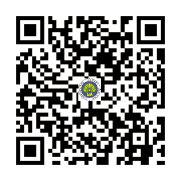Analisis Kemampuan Berargumentasi Mahasiswa Pendidikan Fisika Universitas Negeri Malang pada Topik Suhu dan Kalor
Keywords:
Argumentation Skills, Kemampuan Berargumentasi, Physics Education Students, Mahasiswa Pendidikan Fisika, Temperature and Heat, Suhu Dan KalorAbstract
The ability to argue is very important because argumentation is a thought process used to develop and present arguments. By arguing students can reason scientifically to produce a mature conceptual understanding. It is closely related to critical thinking and reasoning complex problems in physics that require careful and balanced consideration to be solved. This study aims to analyze the argumentation ability of physics education students at the State University of Malang on the topic of temperature and heat. The type of research method used is a qualitative method. The test instrument is in the form of 5 descriptions of the indicators of the ability to argue which includes four stages including claim, evidence, reasoning, and backing. The results showed that the students' ability to argue on the material of temperature and heat was included in the medium category. Of the four indicators tested, only two were well achieved by students, namely the first and second indicators. The first indicator is to make a statement according to the problem (claim) and the second indicator is to contain supporting scientific data (evidence).
Kemampuan berargumen sangat penting karena argumentasi merupakan proses berpikir yang digunakan untuk mengembangkan dan menyajikan argumen. Dengan berargumentasi siswa dapat bernalar ilmiah untuk menghasilkan pemahaman konseptual yang matang. Hal ini erat kaitannya dengan berpikir kritis dan bernalar mengenai masalah kompleks dalam fisika yang membutuhkan pertimbangan yang cermat dan seimbang untuk diselesaikan. Penelitian ini bertujuan untuk menganalisis kemampuan berargumentasi mahasiswa pendidikan fisika Universitas Negeri Malang pada topik suhu dan kalor. Jenis metode penelitian yang digunakan adalah metode kualitatif. Instrumen tes berupa 5 soal uraian dengan indikator kemampuan berargumentasi yang meliputi empat tahapan diantaranya berupa claim, evidence, reasoning, dan backing. Hasil penelitian menunjukkan bahwa kemampuan berargumen mahasiswa pada materi suhu dan kalor termasuk dalam kategori sedang. Dari empat indikator yang diujikan, hanya dua yang dapat dicapai dengan baik oleh mahasiswa, yaitu indikator pertama dan kedua. Indikator pertama yakni membuat pernyataan sesuai permasalahan (claim) dan indikator kedua yakni menuliskan data ilmiah yang mendukung (evidence).
References
Albab, U., & Anisyah, Q. (2020). Analisis Kemampuan Berargumentasi Ilmiah Mahasiswa Jurusan Fisika Universitas Negeri Malang pada Materi Suhu dan Kalor. Jurnal Riset Pendidikan Fisika, 3(1), 1–7.
Bricker, L. A., & Bell, P. (2008). Conceptualizations Of Argumentation From Science Studies And The Learning Sciences And Their Implications For The Practices Of Science Education. Science Education, 92(3), 473–498.
Dewi, D. A. D., & Bektiarso, S. (2017). Pengaruh Model Pembelajaran Problem Based Instruction disertai Metode Pictorial Riddle Terhadap Hasil Belajar dan Kemampuan Berpikir Kritis Siswa pada Mata Pelajaran Fisika di SMA. Jurnal Pembelajaran Fisika, 6(1), 48–55.
Enduran, S. (2008). Tapping Argumentation: Developments in Application of Toulmin’s Argumen Pattern for Studying Science Discource. International Journal Of Science. (n.d.).
Gilbert, J. K., Boulter, C., & Rutherford, M. (1998). Models in Explanations, Part 1: Horses for Courses? International Journal of Science Education, 20(1), 83–97.
Grandy, R. E., & Duschl, R. A. (2007). Reconsidering the Character and Role of Inquiry in School Science: Analysis of a Conference12.
Handayani, P. (2015). Analisis Argumentasi Peserta Didik Kelas X SMA Muhammadiyah 1 Palembang dengan Menggunakan Model Argumentasi Toulmin. Jurnal Inovasi Dan Pembelajaran Fisika, 2(1), 60–68.
Kristiawan, M. (n.d.). Analisis Pengembangan Kurikulum dan Pembelajaran. 205.
Kuhn, D. (1992). Thinking as Argument. Harvard Educational Review, 62(2), 155–179.
Kuhn, D., & Udell, W. (2003). The Development of Argument Skills. Child Development, 74(5), 1245–1260.
Lawson, A. (2003). The Nature and Development of Hypothetico‐Predictive Argumentation with Implications for Science Teaching. International Journal of Science Education, 25(11), 1387–1408.
Osborne, J., Erduran, S., & Simon, S. (2004). Enhancing The Quality of Argumentation in School Science. Journal of Research in Science Teaching, 41(10), 994–1020.
Priyadi, R., Suryanti, K., & Varela, L. (2019). Profil Model Pemahaman Peserta Didik pada Topik Suhu dan Kalor: Studi lintas pendidikan. Jurnal Penelitian Pembelajaran Fisika, 10(1), 51–56.
Putri, Y. E., Nuraina, E., & Styaningrum, F. (2019). Peningkatan Kualitas Hard Skill dan Soft Skill Melalui Pengembangan Program Teaching Factory (Tefa) Di Smk Model Pgri 1 Mejayan. 8.
Sari, R. A., Musthafa, B., & Yusuf, F. N. (2021). Pembelajaran Argument Driven Inquiry pada Materi Suhu dan Kalor untuk Meningkatkan Kemampuan Argumentasi Ilmiah Siswa. 10.
Schwarz, C. V., Reiser, B. J., Davis, E. A., Kenyon, L., Achér, A., Fortus, D., Shwartz, Y., Hug, B., & Krajcik, J. (2009). Developing a Learning Progression for Scientific Modeling: Making Scientific Modeling Accessible and Meaningful for Learners. Journal of Research in Science Teaching: The Official Journal of the National Association for Research in Science Teaching, 46(6), 632–654.
Sudarmo, N. A., Lesmono, A. D., & Harijanto, A. (n.d.). Analisis Kemampuan Berargumentasi Ilmiah Siswa SMA pada Konsep Termodinamika. 6.
Taber, K. S. (2001). The Mismatch Between Assumed Prior Knowledge and The Learner’s Conceptions: A Typology of Learning Impediments. Educational Studies, 27(2), 159–171.
Ulpa, M., Abdurrahman, A., & Wahyudi, I. (2014). Perbandingan Hasil Belajar Fisika Ditinjau dari Kemampuan Argumentasi Oral dan Tertulis. Jurnal Pembelajaran Fisika, 2(3).
Viyanti, V., Cari, C., Sunarno, W., & Prasetyo, Z. K. (2017). Level of Skill Argued Students on Physics Material. Journal of Physics: Conference Series, 895, 012043. https://doi.org/10.1088/1742-6596/895/1/012043
Von Aufschnaiter, C., Erduran, S., Osborne, J., & Simon, S. (2008). Arguing to learn and learning to argue: Case studies of how students’ argumentation relates to their scientific knowledge. Journal of Research in Science Teaching: The Official Journal of the National Association for Research in Science Teaching, 45(1), 101–131.
Widhi, M. T. W., Hakim, A. R., Wulansari, N. I., Solahuddin, M. I., & Admoko, S. (2021). Analisis Keterampilan Argumentasi Ilmiah Peserta Didik pada Model Pembelajaran Berbasis Toulmin’s Argumentation Pattern (TAP) Dalam Memahami Konsep Fisika dengan Metode Library Research. PENDIPA Journal of Science Education, 5(1), 79–91.
Zohar, A., & Nemet, F. (2002). Fostering Students’ Knowledge and Argumentation Skills Through Dilemmas in Human Genetics. Journal of Research in Science Teaching: The Official Journal of the National Association for Research in Science Teaching, 39(1), 35–62.



1.png)
4.png)









